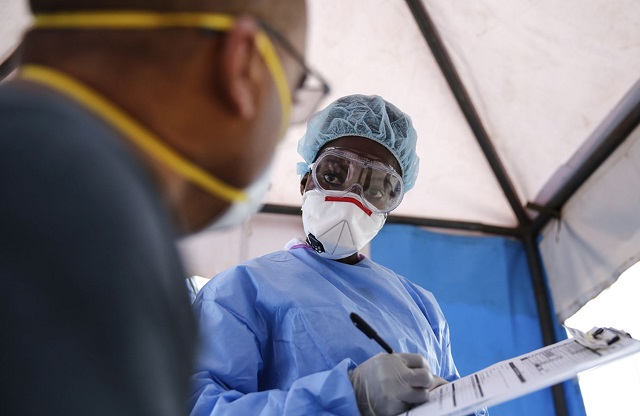
Beijing, China | XINHUA | Experts have voiced concerns over the U.S.’ inaction in joining the international community to help Africa amid the pandemic, the continent hit hardest by COVID-19.
“The U.S. has basically been missing in action on the global front, which is very heartbreaking for me to see,” Jeremy Konyndyk, director of the Office of U.S. Foreign Disaster Assistance of the United States Agency for International Development (USAID) during the Obama administration, said during a discussion held by the Washington-based Center for Strategic and International Studies (CSIS).
According to the Associated Press (AP), more than two dozen international aid groups wrote on June 4 to USAID Acting Administrator John Barsa, saying that “little to no U.S. humanitarian assistance has reached those on the front lines” of the pandemic.
“In spite of months of promising conversations with USAID field staff, few organizations have received an executed award for COVID-19 humanitarian assistance,” the aid groups said in the letter, calling the delays of U.S. assistance “devastating,” and worrying that the window is closing for Washington to help mitigate the impact of the virus.
Also on June 4, leader of the USAID COVID-19 task force, Kenneth Staley, said the Department of State and the USAID have provided almost 400 million U.S. dollars across Africa to help fight the COVID-19 pandemic. However, U.S. officials have not given details on the number of crucial items delivered to African countries where such equipment is in short supply.
When asked by AP reporters about the number of such items provided by Washington, John Nkengasong, chief of the Africa Centers for Disease Control and Prevention (Africa CDC), said, “Unfortunately, I cannot give you a number … It has been a challenging time for many countries to fight their own pandemic.”
“Rather than lead, or even join, international partners in assisting Africa, the U.S. has opted instead to harass its geopolitical rivals and undercut multilateral efforts to cope with the emergency,” wrote William Bellamy, senior advisor for Africa at the CSIS and also former U.S. ambassador to Kenya, in an article published by South African online news service the Daily Maverick.
U.S. President Donald Trump announced in May that his country would sever ties with the World Health Organization (WHO) and terminate funding for the organization. Two months later, the United States notified the United Nations (UN) secretary-general of its withdrawal from the WHO.
The impact of the U.S.’ exit from the WHO, a decision “both immoral and likely illegal,” will be inflicted on “the COVID-19 battlefields and in every poor community that relies on UN agencies for emergency food, child immunizations, essential medicines, and guidance,” Laurie Garrett, a Pulitzer Prize winning science writer, said in an article published in Foreign Policy.
“We hope that the US will focus on its own epidemic response and also contribute to the global fight against the virus through concrete deeds, instead of undermining and badmouthing other countries’ response and spreading the ‘political virus’,” Chinese Foreign Ministry Spokesperson Zhao Lijian has said.
So far, the number of COVID-19 cases in Africa has surged to 1,136,246, the Africa CDC said on Wednesday.
******
XINHUA
 The Independent Uganda: You get the Truth we Pay the Price
The Independent Uganda: You get the Truth we Pay the Price





